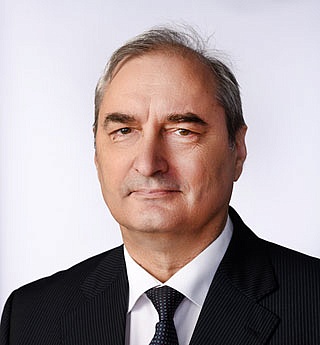Russia Does Not Abolish Intellectual Property Rights
16 March 2022Some Russian and foreign media have made posts stating that the Russian Government has issued a decision abolishing a remuneration for the infringement of the patents owned by patent holders from some countries.
This information is not true to the fact.
Actually, on 6 March 2022, the Government issued Decree No. 299, which amended the Methods for Determining a Remuneration to Be Paid to a Patent Holder When the Government Decides on the Use of an Invention, a Utility Model, or an Industrial Design without the Patent Holder’s Consent (the “Methods”).
In this case, it should be realised that this is about those cases only where the Government of Russia has issued an authorisation to use the inventions provided for in Article 1360 of the Civil Code of Russia, i. e., in extreme urgency related to the defence and security of the state and to the protection of the population’s life and health. This Article stipulates that, when issuing such an authorisation, a patent holder should be paid an adequate remuneration, the methods for determining which are to be approved by the Government of Russia. A possibility to issue such compulsory licences is provided for in the international treaty, TRIPS (Article 31).
There were only three such government licences issued in Russia (in 2020, 2021, and 2022). And they all relate to the use of several patents of the Gilead group of companies (USA) for the inventions used in the production of Remdesivir used to treat COVID-19.
The Methods for Determining a Remuneration were approved by the Government on 18 October 2021 (Decree No. 1767) and they stipulated that, when the Government issues a compulsory licence, a remuneration to the right holder should amount to 0.5% of the revenues received from the use of the patented invention, utility model, or industrial design by the person to whom such a “government licence” is issued.
And the first two “government licences” (in 2020 and 2021) were issued subject to payment to patent holders of the remuneration. Quite so, the issue of the third licence (Order of the Government No. 429-r dated 5 March 2022) provides for no remuneration; and the Methods for Determining a Remuneration are amended so that, for the patent holders from countries that commit unfriendly acts against Russian individuals and legal entities, “the remuneration is 0% of the revenues...”.
Of course, it may be argued that such a decision of the Russian Government complies with neither Article 1360 of the Civil Code of Russia nor Article 31 of the TRIPS Agreement, which provide for payment of an adequate remuneration.
The above concept of government authorisations, however, does not affect in any way the norms of the Civil Code of Russia, which allow for enforcement of the exclusive patent right, including recovering the remuneration provided for in Article 1406.1 of the Civil Code of Russia.
The government authorisations confer the right of use without the patent holder’s consent on specific companies only. Therefore, a patent holder may successfully protect its rights against all other competitors that have not obtained such government authorisations, including recovering remunerations for the patent infringement.
Such a remuneration, not only in case of the patent infringement, but also in case of the infringement of any other rights (to trade marks, copyright, etc.), is awarded by the court.
Also, in the media and on the Internet, there is a heated discussion of the “Russian Government’s proposal” to allow the pirated use of the software owned by foreign right holders.
This information is not true to the fact either: the Russian Government has not advanced such a proposal.
Actually, the Government, involving stakeholders, is discussing possible countermeasures due to the imposition of anti-Russian sanctions by a number of foreign countries as well as the decisions of individual companies, including IT businesses, to stop selling and supporting their software products in Russia.
Well, a proposal to abolish criminal responsibility and administrative liability for “piracy” with regard to computer programs has been listed on one draft Action Plan, which has come into the possession of the media. However, this proposal is not supported by the designated Russian ministry (the Ministry of Digital Development, Communications and Mass Media) and the designated Russian IT associations. These proposals have not been considered at the Government meetings, where the anti-crisis measures have been discussed, and are excluded from the updated draft Action Plan.
Actually, the draft Action Plan still contains a proposal to introduce a “compulsory licensing mechanism” for computer programs. However, possible limitations and exceptions to copyrights are already provided for in clause 5 of Article 1229 of the Civil Code of Russia and permitted by Article 13 of the TRIPS Agreement. Both these norms establish that limitations or exceptions to exclusive copyrights are confined to certain special cases which do not conflict with a normal exploitation of the work and do not unreasonably prejudice the legitimate interests of the right holder.
Time will tell how the “compulsory licensing mechanism” envisaged by the draft Action Plan is compliant with the Code and the Agreement. We should wait for the Government’s draft law on this point if such a draft is ever prepared.











